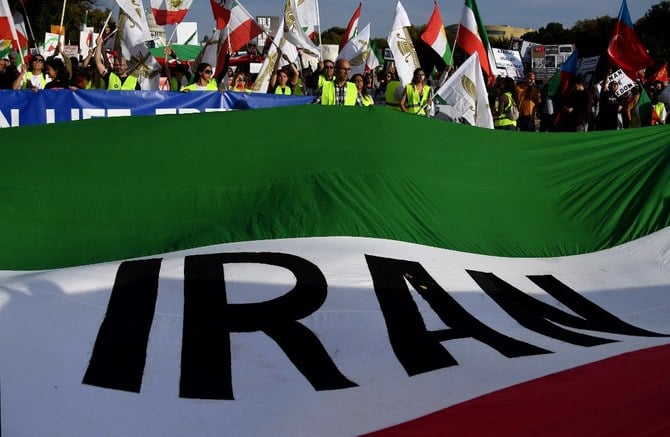
Iran’s politicians and state-owned Persian news outlets dedicated significant coverage last week to a secretive 25-year deal between Iran and China.
President Hassan Rouhani has depicted the agreement as a victory for Tehran, while Foreign Minister Mohammed Javad Zarif insisted there is nothing secretive about it. But leaked information has caused many controversies in Iran in the last year and shows a different reality. Even former President Mahmoud Ahmadinejad alluded to the secrecy of the deal, stating: “It is not valid to enter into a secret agreement with foreign parties without considering the will of the Iranian nation and against the interests of the country, and the Iranian nation will not recognize it.”
The deal appears to be a colonial agreement, in which the ruling mullahs are granting a foreign country significant rights over Iran’s resources. One of the obscured elements of the deal is that China will be investing nearly $400 billion in Iran’s oil, gas and petrochemicals industries in the first five years of the agreement. In return, China will get priority to bid on any new project in Iran that is linked to these sectors. China will also get a 12 percent discount and it can delay payments by up to two years. In addition, China will essentially be able to pay in any currency it desires. In total, China will receive discounts of nearly 32 percent.
Another secretive element relates to the military dimension of the agreement, whereby China will have 5,000 members of its security forces present on the ground in Iran. This concession is unprecedented in the history of the Islamic Republic.
A headline in Iranian newspaper Arman-e Melli last week surprisingly criticized the government, stating: “Iran is not Kenya or Sri Lanka (to be colonized by China).” An article in Hamdeli written by journalist Shirzad Abdollahi was published with the title, “Will Iran become a Chinese colony?” He warned officials: “The smiles of the Chinese and the Russians are as harmful and destructive to Iran as Trump’s frown. The Americans are openly expressing their views, but the Chinese and the Russians are pursuing their own interests in the guise of diplomatic compliments. China, Russia, the United States, Europe, and all countries are pursuing their own national interests in relation to Iran, and romantic or hostile relations with Iran are meaningless.”
The Iranian regime has become so desperate economically that it is violating its own revolutionary values. The Islamic Republic has long prided itself on the notion that it is different from the pre-revolution regimes that capitulated to Russia, China and the West. The ruling clerics sought to achieve their revolutionary ideals independently, with the Islamic Republic’s founder and first Supreme Leader Ruhollah Khomeini advocating that Tehran should pursue a policy of “neither East nor West.”
It is worth noting that, when Iran allowed Russia to use its Hamadan airbase as a base from which to bomb Syria in 2016, Tehran violated its own constitution. Article 146 of the Islamic Republic’s constitution stipulates: “The establishment of any kind of foreign military base in Iran, even for peaceful purposes, is forbidden.”
Iran’s recent concessions to Russia and China have been compared to the humiliating deals made prior to the Islamic Revolution, such as when, in 1872, the Iranian ruler Nasir Al-Din Shah gave British banker Baron Julius de Reuter significant control over Persian roads, factories, the extraction of resources, telegraphs, mills, and other public works in exchange for some of the revenue for 20 years. The Reuter concession was so extensive that even famous imperialists such as Lord Curzon characterized it as “the most complete grant ever made of control of resources by any country to a foreigner.”
The outraged domestic response to that deal is being echoed in Iran today. Intriguingly, Ahmadinejad, told Iranian officials: “I have heard that they are negotiating and want to sign a new 25-year agreement with a foreign country, and no one knows about it. Do you own the country, while auctioning the country without the knowledge of the people? We made a revolution so that no issue would be hidden from the nation, and no one would consider themselves as the owners of the nation.”
In short, the ruling clerics of Iran, who previously criticized the shah for granting power over the Iranian nation to the West, are now giving significant power to China and Russia.
Dr. Majid Rafizadeh is a Harvard-educated Iranian-American political scientist. Twitter: @Dr_Rafizadeh
Disclaimer: Views expressed by writers in this section are their own and do not necessarily reflect Arab News" point-of-view












